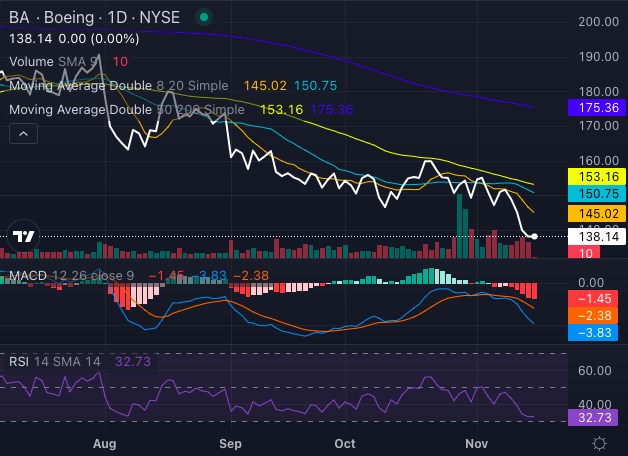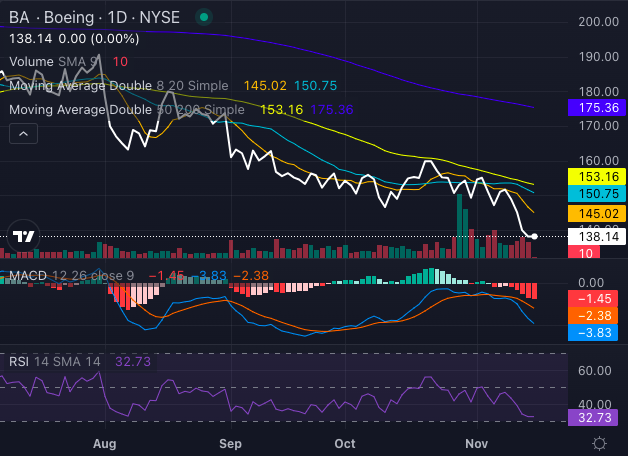Boeing Co BA is preparing to lay off 17,000 employees, reflecting a significant effort to adjust its workforce size.
These layoffs represent 10% of Boeing’s global workforce. The company is facing financial difficulties, which include a struggling stock price and production challenges. These job cuts, anticipated since October, have now been confirmed by Reuters, underscoring Boeing’s ongoing efforts to regain stability.
See Also: October Retail Sales Exceed Expectations as U.S. Consumers Boost Tech Spending
2024: A Strenuous Year for Boeing
Boeing will notify its U.S. employees about the layoffs 60 days in advance, as required by federal law, ensuring they remain on payroll until January. This decision comes as the company navigates significant changes under new CEO Kelly Ortberg, who is managing:
- A major financial restructuring,
- A recent union strike, and
- A critical production recovery initiative.
Boeing has faced multiple challenges this year, including a notable safety incident and an extended labor strike that concluded on November 5.
Read Also: Jim Cramer Identifies an Undervalued Tobacco Stock But Won’t Recommend It
737 MAX Production: A Possible Silver Lining
Amid these challenges, Boeing is now working to boost production of the 737 MAX, a key contributor to its revenue, following the strike involving 33,000 workers.
Although production is gradually increasing, the announcement of layoffs and financial cutbacks has impacted employee morale significantly.
A Lingering Bearish Mood for Boeing
While Boeing is downsizing its workforce, its financial viability is under scrutiny. The company raised $24 billion in late October to strengthen its balance sheet, yet its stock has seen a sharp decline.

Chart created using Benzinga Pro
To date, Boeing’s stock has dropped over 45%, with the current share price at $138.14. This figure is significantly below important benchmarks, such as the 200-day simple moving average (SMA), which stands at $175.36.
This technical decline suggests ongoing risk for investors, as indicated by a moving average convergence/divergence (MACD) at a negative 3.83 and a relative strength index (RSI) of 32.73, signaling that Boeing’s stock may be approaching oversold conditions.
Will Boeing Rise Again?
Despite recent turmoil, Boeing’s attempts to reclaim its position, especially with the 737 MAX, are essential for its future success.
However, with the stock trend remaining negative and uncertainty overshadowing its workforce, investors will be on the lookout for any potential signs of recovery.
The future of Boeing relies on whether the 737 MAX can ascend once more—both in the market and in production.
Read Next:
Image: Shutterstock
Market News and Data brought to you by Benzinga APIs









